Mexican kitchen design represents a vibrant celebration of culture, tradition, and authentic craftsmanship that transforms cooking spaces into warm, inviting gathering areas. These kitchens blend rich heritage with modern functionality, creating environments that reflect Mexico's diverse regional influences and artistic traditions. From the colorful hand-painted Talavera tiles of Puebla to the rustic charm of Oaxacan pottery, Mexican kitchens embrace natural materials, bold color palettes, and handcrafted elements that tell stories of generations past. The design philosophy centers on creating spaces that encourage family connection and celebration, where cooking becomes a communal experience filled with warmth and hospitality. Whether incorporating traditional elements like copper accents and wrought iron details or embracing contemporary interpretations with clean lines and neutral tones, Mexican kitchen designs offer endless possibilities for creating unique, personalized spaces that honor cultural heritage while meeting modern lifestyle needs.
1. Talavera Tile Backsplash Mexican Kitchen Design

What if your kitchen backsplash could transport you to the colorful markets of Puebla with every glance? Talavera tile backsplashes create stunning focal points through their hand-painted ceramic artistry and vibrant geometric patterns. These traditional tiles feature intricate designs in cobalt blue, sunshine yellow, and deep terracotta, each piece individually crafted by skilled artisans. The glazed ceramic surface provides excellent durability for kitchen environments while adding authentic Mexican character. Consider mixing different Talavera patterns to create visual interest, or use solid-colored tiles as borders to frame decorative motifs. The tiles work beautifully with both rustic wood cabinets and sleek modern cabinetry, proving their versatility across design styles.
2. Rustic Pine Cabinet Mexican Kitchen Styles
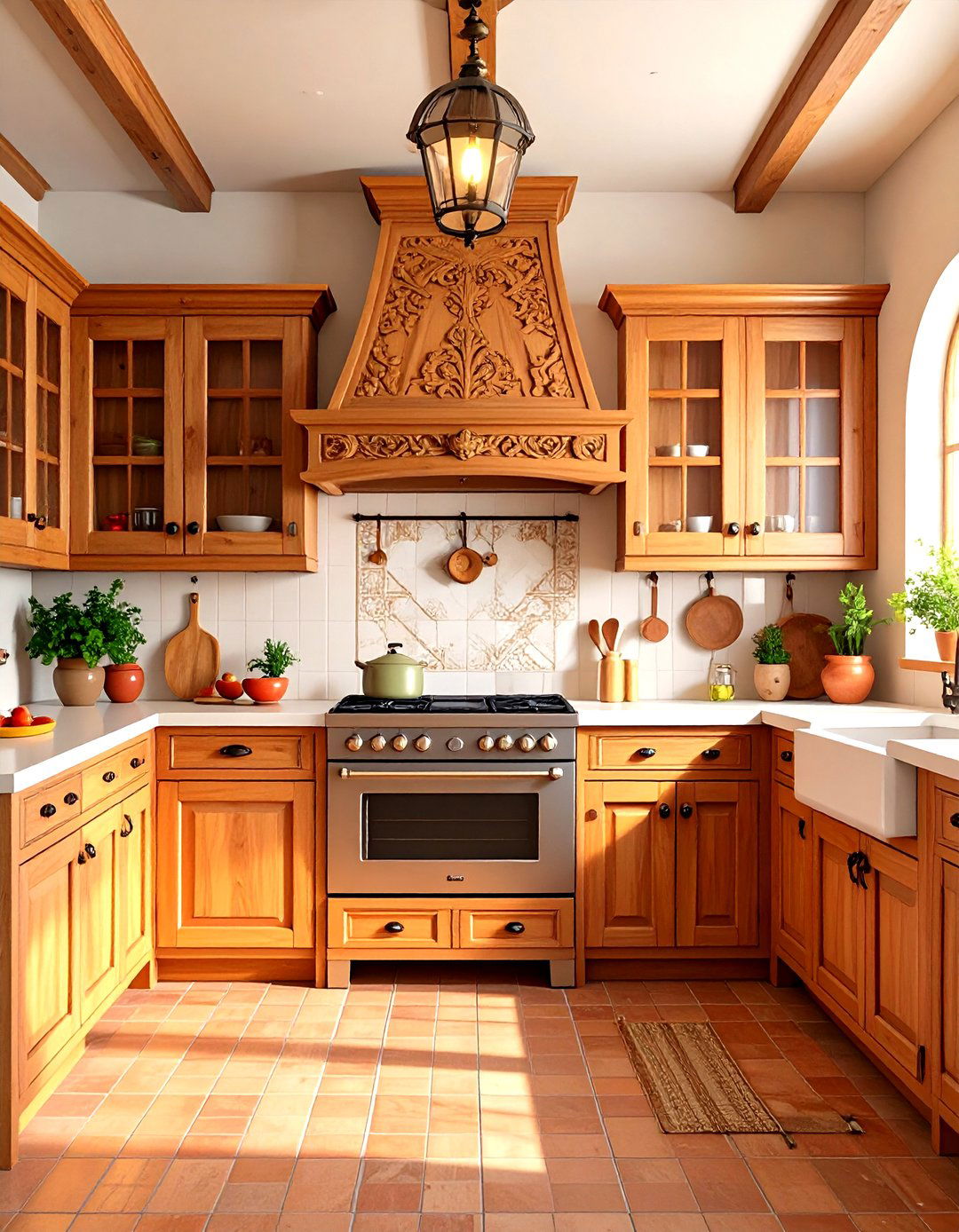
Rustic pine cabinets embody the warm, lived-in charm that defines traditional Mexican kitchen aesthetics. These handcrafted wooden elements feature natural grain patterns, carved details, and distressed finishes that create authentic hacienda-style appeal. Pine's naturally warm golden tones complement colorful ceramic tiles and copper accents perfectly. Many designs incorporate traditional mortise-and-tenon joinery techniques, ensuring both durability and authentic craftsmanship. Consider pairing pine cabinets with wrought iron hardware, decorative carved panels, or glass-front doors displaying colorful pottery collections. The wood's natural variations and imperfections add character rather than detract from the overall design, creating kitchens that feel welcoming and authentic to Mexican design traditions.
3. Copper Accent Mexican Kitchen Elements
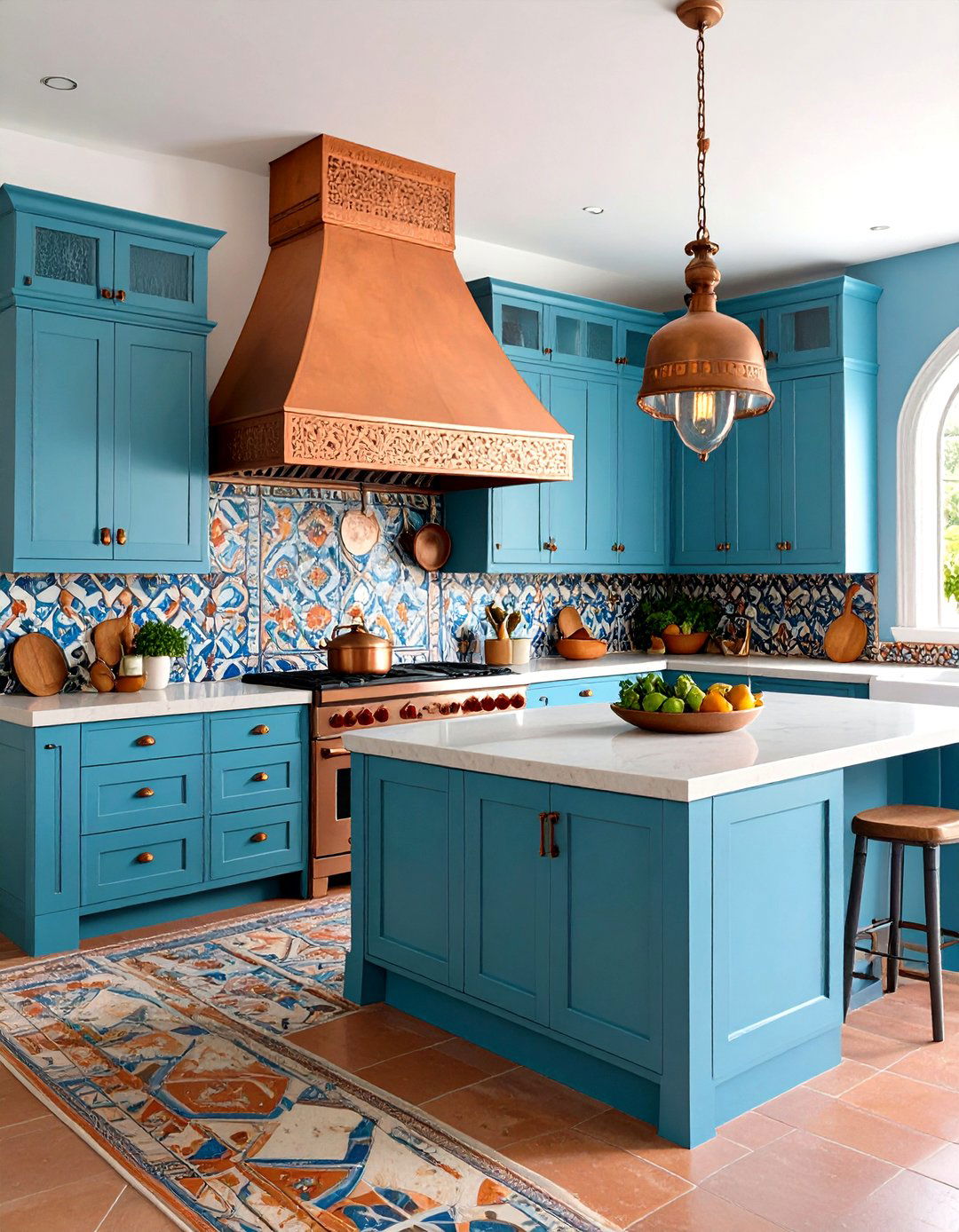
Copper brings warmth and metallic beauty to Mexican kitchen designs through its natural patina and artisanal appeal. This versatile metal appears in range hoods, farmhouse sinks, lighting fixtures, and decorative accessories that develop character over time. Hand-hammered copper surfaces create texture and visual interest while providing excellent heat conductivity for cooking applications. The metal's warm reddish-brown tones complement earth-toned ceramics and natural wood beautifully. Consider incorporating copper pot racks, cabinet hardware, or backsplash panels to add authentic Mexican craftsmanship. Many copper elements feature traditional techniques passed down through generations of Mexican metalworkers, ensuring each piece carries cultural significance while serving practical kitchen functions.
4. Wrought Iron Hardware Mexican Kitchen Features

Could wrought iron hardware transform your kitchen into an authentic Mexican hacienda retreat? These hand-forged metal elements add rustic sophistication through scrollwork, geometric patterns, and traditional blacksmithing techniques. Cabinet pulls, hinges, and decorative brackets showcase the artistry of Mexican metalworkers while providing durable functionality. Wrought iron's dark finish creates beautiful contrast against light-colored wood cabinets or colorful tile surfaces. Consider incorporating iron pot racks, chandelier lighting, or window grilles to extend the theme throughout the space. The metal's organic curves and handcrafted variations ensure each piece feels unique and authentic to traditional Mexican design principles.
5. Terra Cotta Floor Mexican Kitchen Designs

Terra cotta flooring brings earthy warmth and authentic Mexican character through its natural clay composition and traditional firing techniques. These handmade tiles feature subtle color variations, organic textures, and aged patina that develop more beauty over time. The flooring's warm reddish-brown tones create perfect foundations for colorful wall tiles and vibrant kitchen accessories. Terra cotta's natural porosity provides comfortable underfoot feel while maintaining durability for high-traffic kitchen areas. Consider sealing the tiles for easier maintenance while preserving their natural appearance. The flooring works beautifully with both rustic and contemporary Mexican kitchen styles, providing timeless appeal that connects indoor spaces with outdoor garden areas.
6. Colorful Mexican Kitchen Pottery Displays
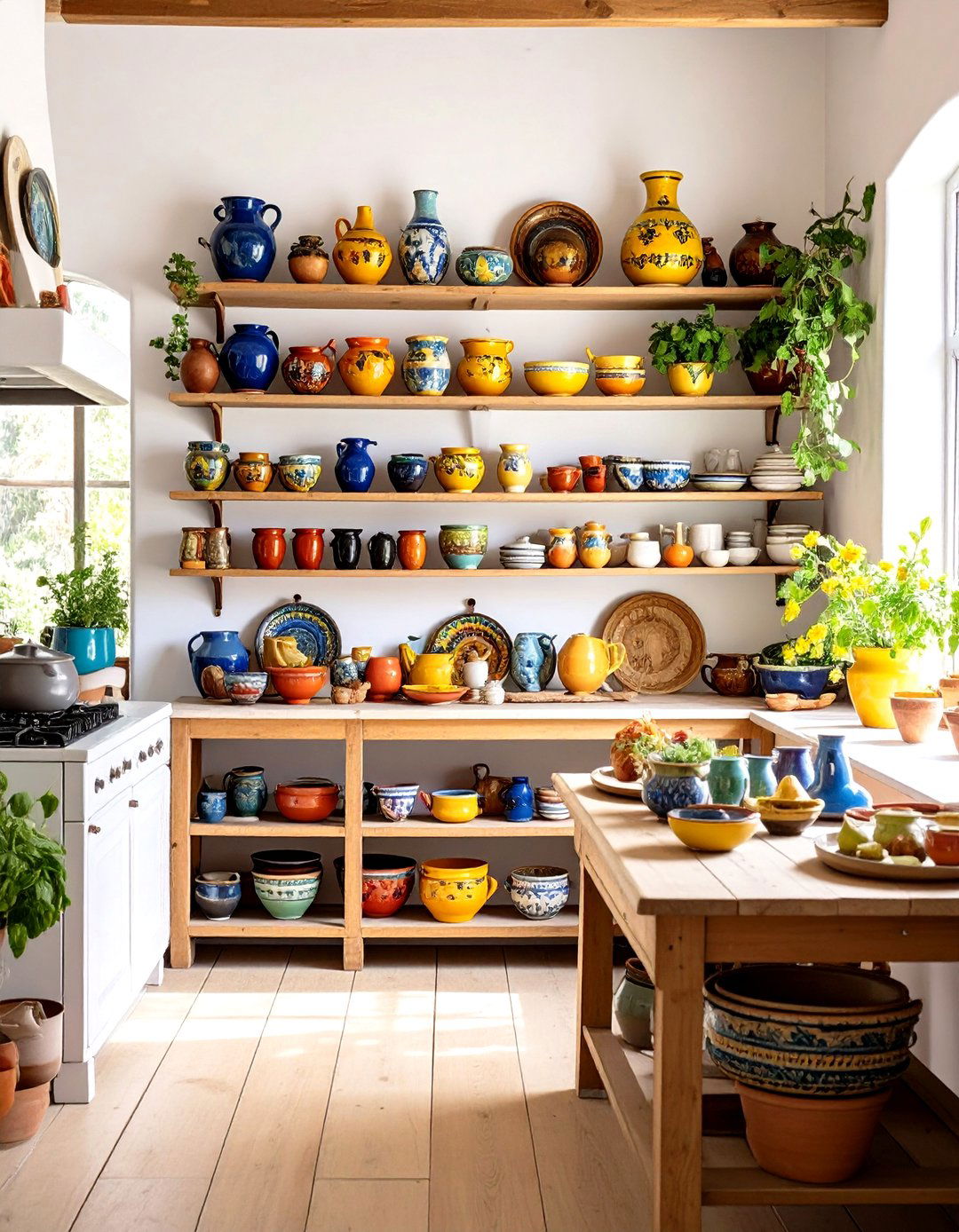
Why not showcase your love for Mexican culture through vibrant pottery collections that double as functional kitchen storage? Handcrafted ceramic pieces from regions like Oaxaca, Tlaquepaque, and Tonalá add authentic artistic flair while serving practical purposes. Display colorful bowls, pitchers, and serving pieces on open shelving or in glass-front cabinets to create visual interest. These pottery pieces feature traditional techniques like burnished finishes, natural clay textures, and hand-painted motifs that celebrate Mexico's rich ceramic heritage. Consider grouping pieces by color family or mixing different regional styles for eclectic appeal. The pottery's handmade qualities ensure each piece contributes unique character to your kitchen's overall aesthetic.
7. Open Beam Mexican Kitchen Ceiling Styles

Exposed wooden ceiling beams create dramatic architectural interest while honoring traditional Mexican construction methods. These substantial timber elements add vertical dimension and rustic charm through their natural wood grain and hand-hewn appearance. Dark-stained beams create striking contrast against white or light-colored ceiling surfaces, while natural finishes blend seamlessly with warm color palettes. Consider incorporating decorative carved details, traditional joinery techniques, or wrought iron brackets for authentic appeal. The beams provide excellent mounting points for hanging pot racks, pendant lighting, or decorative iron fixtures. This architectural feature works equally well in both compact galley kitchens and expansive open-plan layouts.
8. Mexican Kitchen Island Breakfast Bar Concepts

Central kitchen islands with breakfast bar seating create perfect gathering spaces for family meals and casual entertaining. These substantial work surfaces often feature contrasting materials like butcher block tops with painted bases or natural stone countertops with decorative tile accents. Consider incorporating storage for cookbooks, pottery, or serving pieces within the island structure. Bar stools with wrought iron frames, leather seats, or colorful upholstery complement the Mexican aesthetic while providing comfortable seating. The island's central location makes it ideal for food preparation, informal dining, and social interaction that defines Mexican kitchen culture. Choose designs that accommodate both cooking workflows and family gathering needs.
9. Natural Stone Mexican Kitchen Countertops

Natural stone countertops bring geological beauty and durability through materials like granite, marble, or local Mexican stone varieties. These surfaces showcase unique patterns, colors, and textures that complement handmade tiles and rustic wood elements. Stone's natural heat resistance makes it practical for food preparation while its organic variations ensure each installation feels unique. Consider honed finishes for subtle texture or polished surfaces for contemporary appeal. Edge treatments can range from simple straight cuts to decorative carved profiles that enhance the Mexican aesthetic. The stone's neutral tones provide excellent backdrops for colorful pottery displays and vibrant tile backsplashes while maintaining timeless appeal.
10. Mexican Kitchen Herb Garden Integration
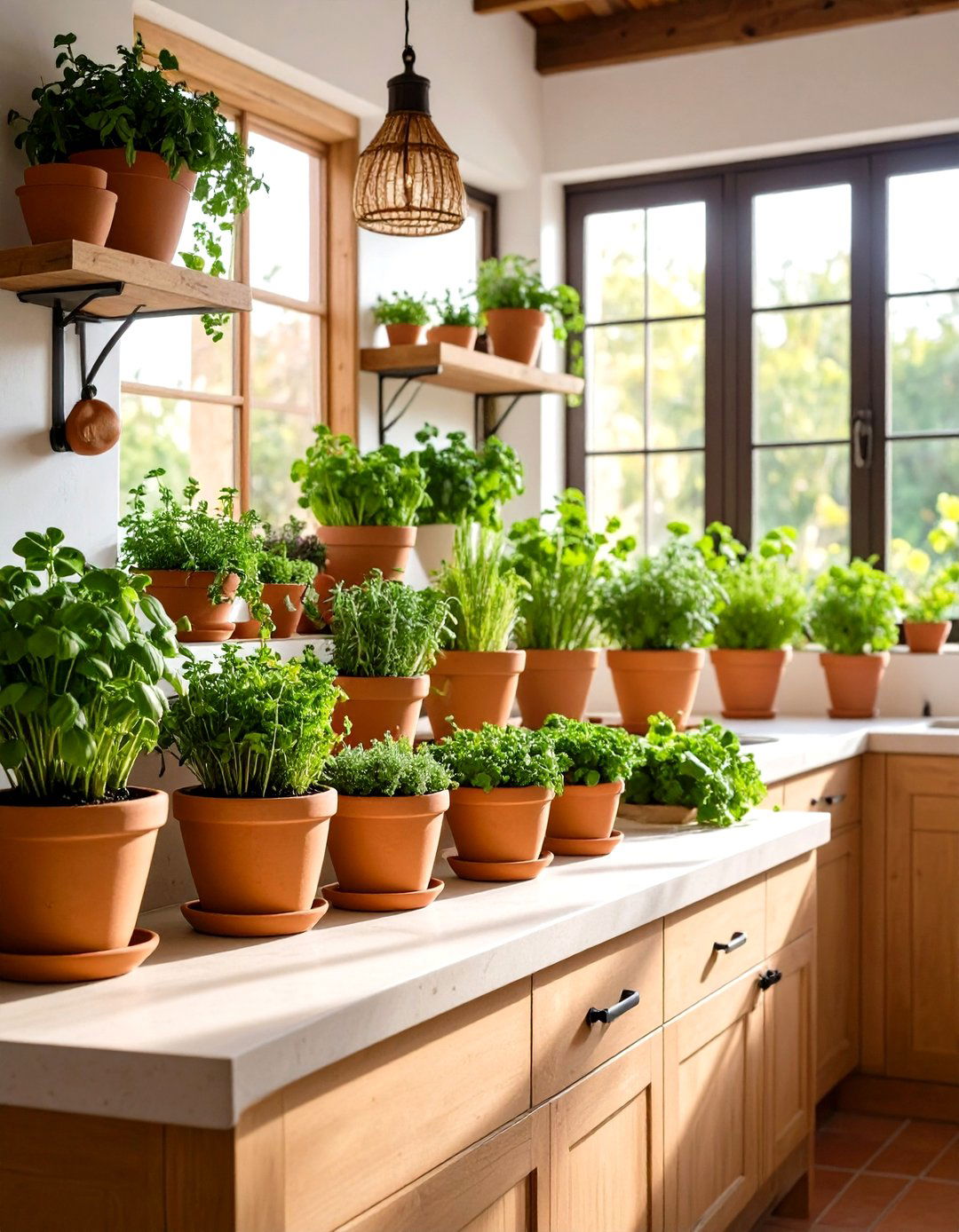
How can you bring fresh flavors and natural beauty directly into your kitchen workspace? Integrated herb gardens create living design elements while providing fresh ingredients for authentic Mexican cooking. Consider windowsill planters, hanging garden systems, or dedicated growing areas near natural light sources. Traditional clay pots filled with cilantro, oregano, and chili plants add both function and authentic Mexican character. Built-in growing systems can incorporate irrigation and drainage while maintaining clean kitchen aesthetics. The gardens provide year-round access to fresh herbs while creating natural air purification and biophilic design benefits that enhance overall kitchen environments.
11. Handpainted Mexican Kitchen Cabinet Designs
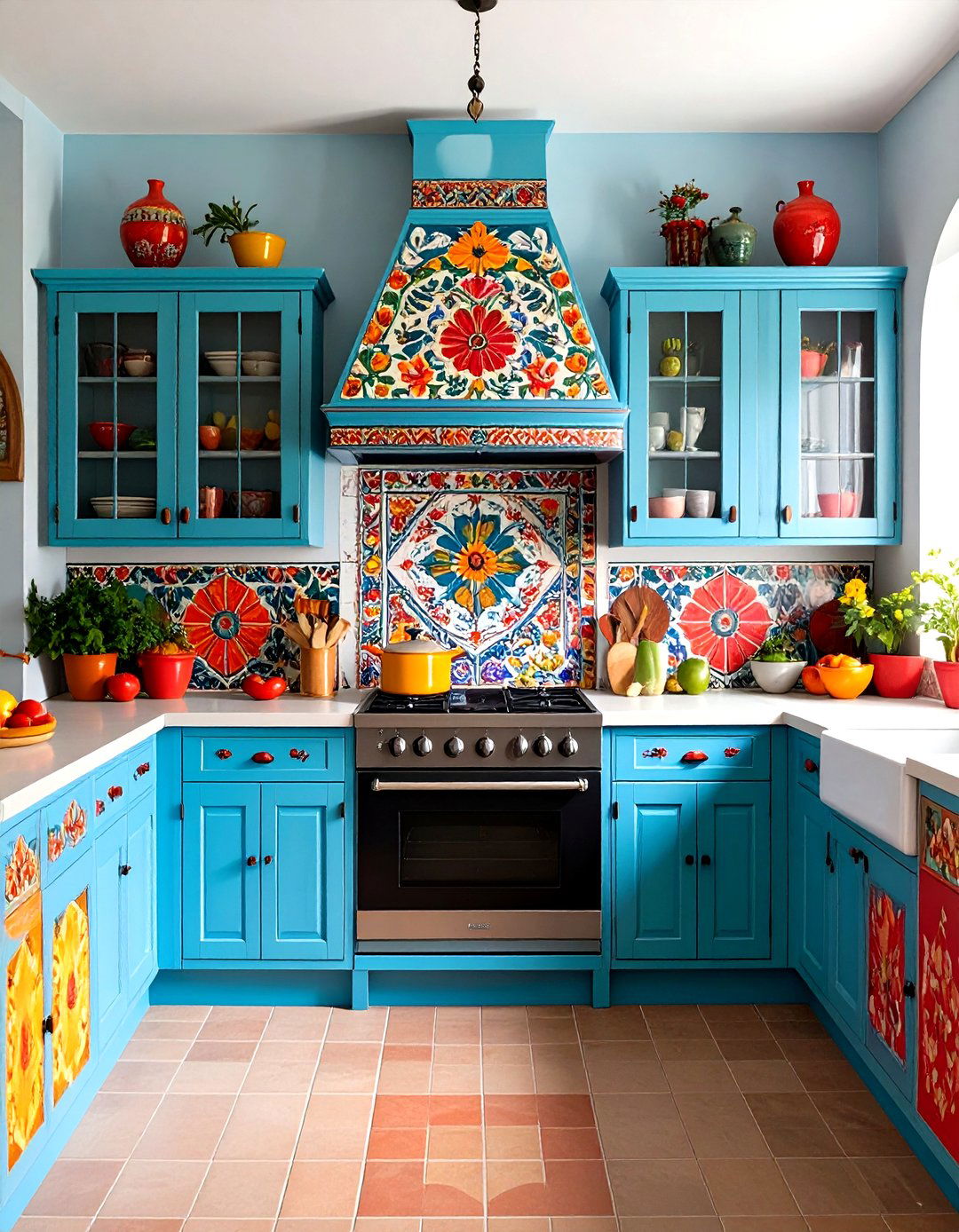
Handpainted cabinet finishes celebrate Mexican folk art traditions through colorful motifs, floral patterns, and decorative border designs. These custom treatments transform plain wood surfaces into artistic expressions that reflect regional artistic styles. Consider hiring local artists or learning traditional painting techniques to create authentic designs. Color palettes often include vibrant blues, warm reds, golden yellows, and forest greens applied over neutral base coats. Protective topcoats ensure durability while preserving the handpainted artwork's vibrancy. These custom treatments work beautifully on both full kitchen renovations and accent pieces like pantry doors or kitchen islands, creating unique focal points that celebrate Mexican artistic heritage.
12. Mexican Kitchen Window Treatment Styles
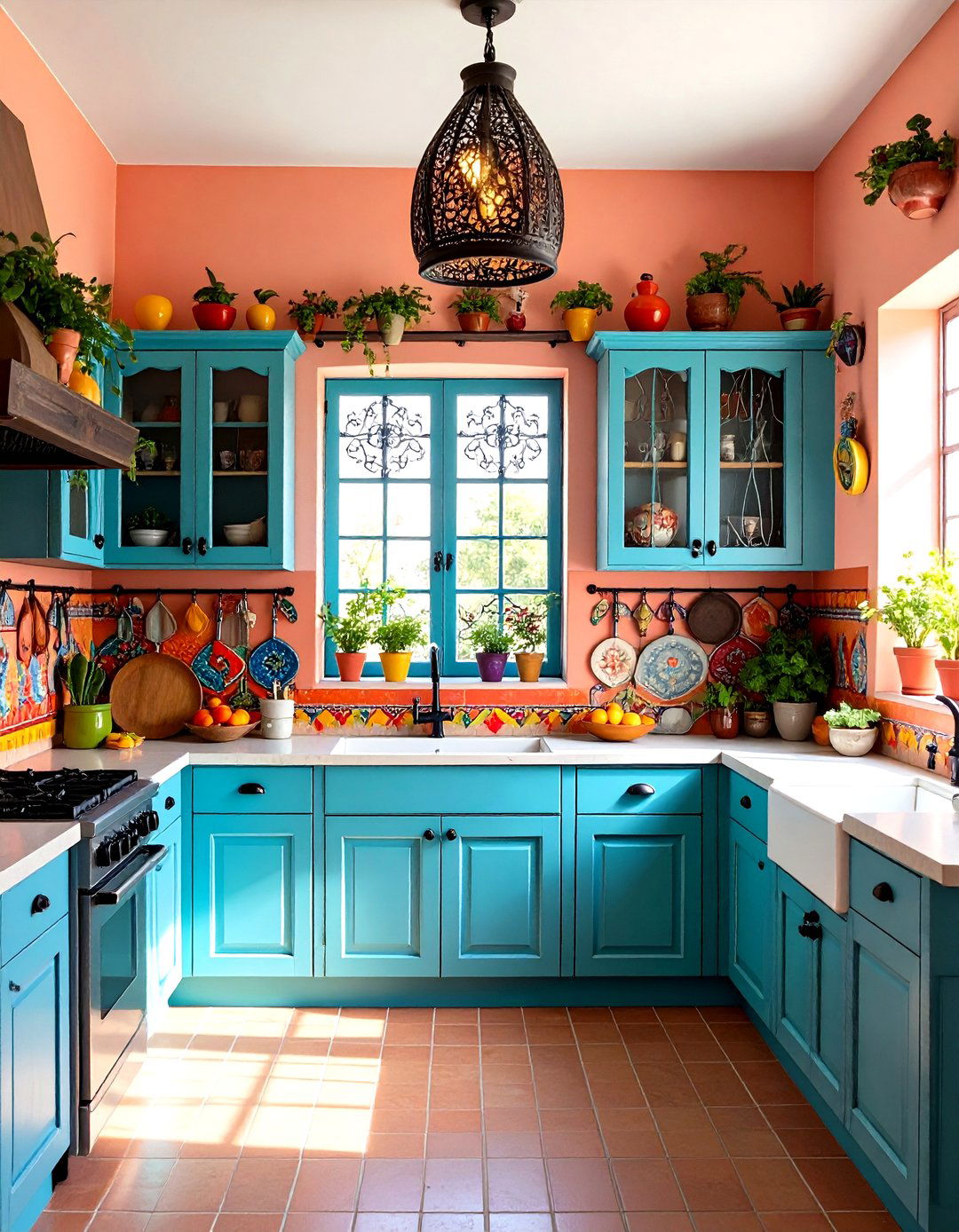
Traditional Mexican window treatments combine functionality with artistic beauty through natural materials and handcrafted details. Consider wooden shutters, wrought iron grilles, or colorful textile panels that filter light while maintaining privacy. Hand-woven fabrics in traditional patterns or vibrant solid colors add softness to rustic kitchen environments. Window boxes filled with herbs or flowering plants extend garden themes indoors while providing natural privacy screening. Valances featuring embroidered details or decorative trim work complement tile backsplashes and pottery displays. These treatments should balance natural light needs with authentic Mexican aesthetic elements, creating comfortable kitchen environments that feel connected to outdoor spaces.
13. Adobe Wall Mexican Kitchen Aesthetics
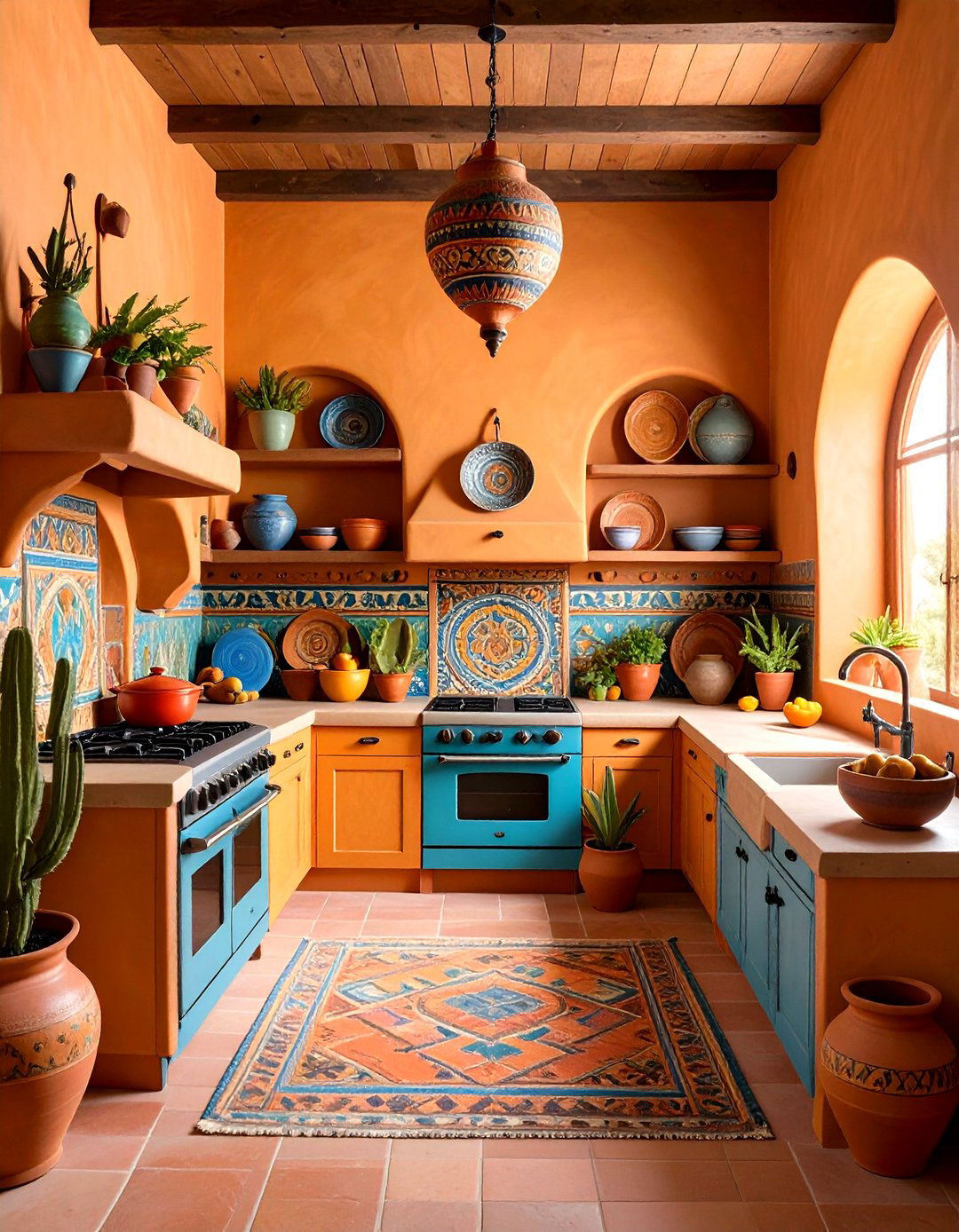
Adobe wall treatments create authentic Mexican ambiance through natural clay plaster finishes and traditional building techniques. These textured surfaces provide excellent thermal mass while showcasing organic variations that enhance handcrafted kitchen elements. Consider applying decorative plaster techniques, natural pigments, or hand-troweled textures that complement tile and wood details. Adobe's neutral earth tones create perfect backdrops for colorful artwork, pottery displays, and vibrant tile installations. The walls' natural variations ensure each surface feels unique while maintaining overall design cohesion. This treatment works particularly well in southwestern climates where traditional adobe construction provides both aesthetic appeal and practical thermal benefits.
14. Mexican Kitchen Lighting Fixture Designs
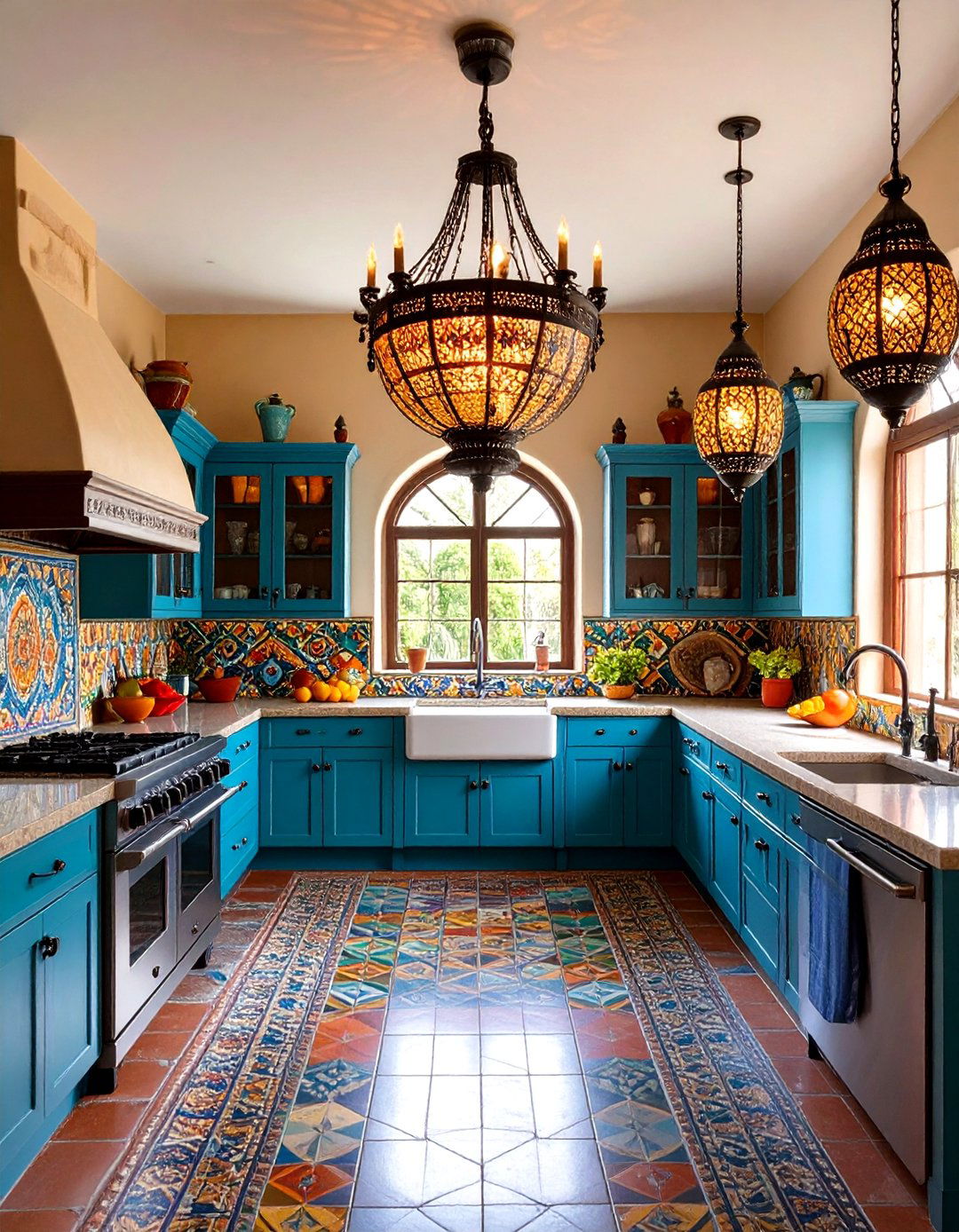
Does your kitchen lighting reflect the warmth and artistry of Mexican craftsmanship? Traditional fixtures combine wrought iron, hand-blown glass, and natural materials to create atmospheric illumination. Consider pendant lights over islands, chandeliers in dining areas, or wall sconces for task lighting. Many fixtures feature punched tin details, colored glass panels, or decorative metalwork that casts interesting shadow patterns. Candle-style elements add romantic ambiance for evening entertaining while practical task lighting ensures safe food preparation. The fixtures should complement other design elements while providing adequate illumination for both cooking tasks and social gatherings that define Mexican kitchen culture.
15. Mexican Kitchen Spice Storage Solutions

Organized spice storage celebrates Mexican cuisine's complex flavors while creating beautiful display opportunities for colorful seasonings and dried chiles. Traditional clay containers, wooden spice racks, or handcrafted ceramic jars provide both function and authentic aesthetic appeal. Consider open shelving systems that showcase spice collections while maintaining easy access for cooking. Magnetic spice containers on metal surfaces or hanging racks near cooking areas improve workflow efficiency. Label containers with decorative tags or hand-lettering that complements the kitchen's overall design theme. These storage solutions should accommodate Mexican cuisine's diverse spice requirements while contributing to the kitchen's visual appeal through organized, accessible displays.
16. Mexican Kitchen Range Hood Statements

Custom range hoods create dramatic focal points while incorporating traditional Mexican materials and craftsmanship techniques. Consider designs featuring stucco finishes, decorative tile work, or hammered copper surfaces that complement overall kitchen aesthetics. Hand-forged iron brackets, carved wood details, or mosaic tile patterns add authentic Mexican character while providing essential ventilation functions. The hood's substantial presence can anchor kitchen designs while showcasing artisanal skills and traditional building methods. Size and style should complement cooking equipment while maintaining proportion with surrounding cabinetry and architectural elements. These statement pieces often become conversation starters that celebrate Mexican craftsmanship and design traditions.
17. Mexican Kitchen Breakfast Nook Designs
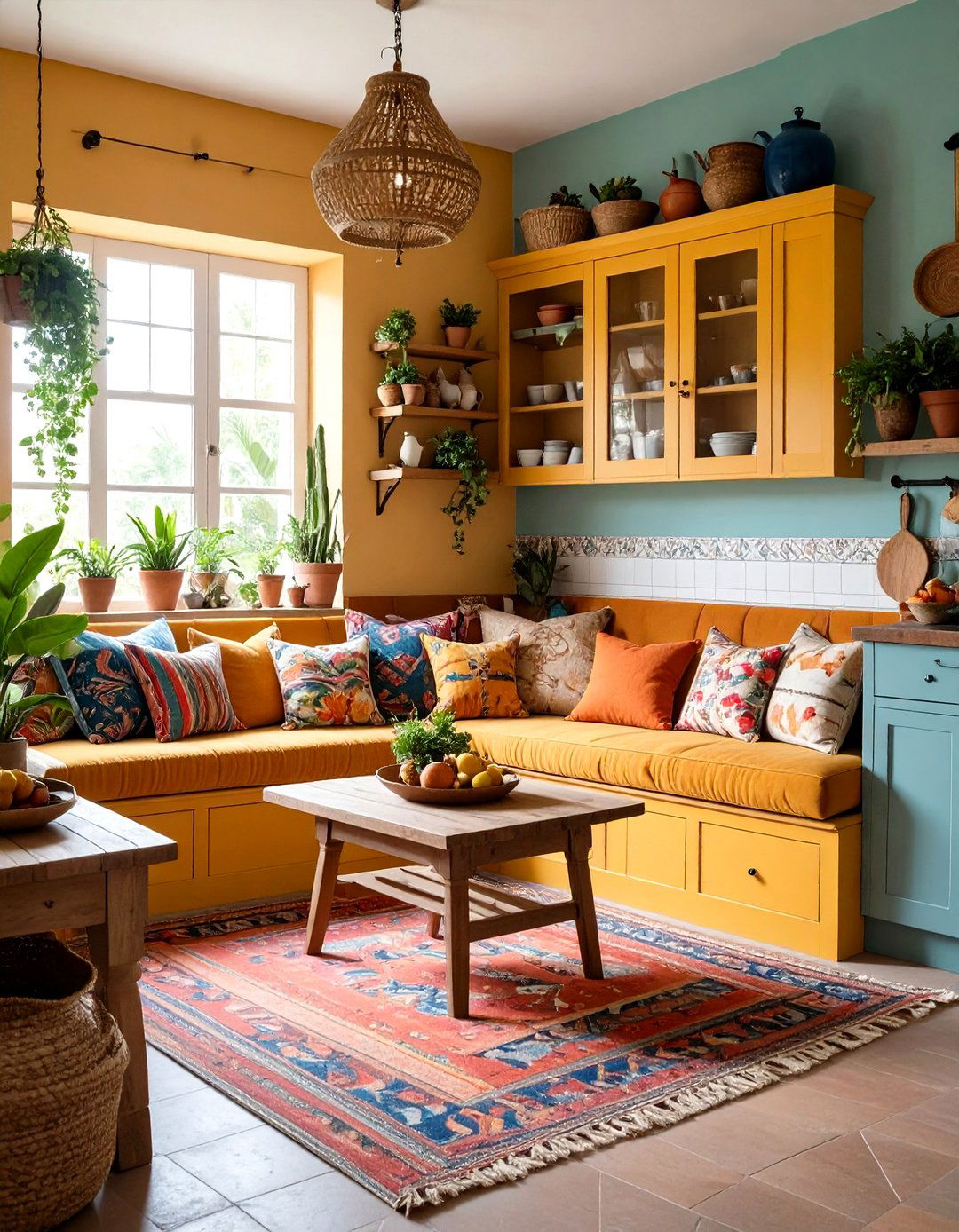
Cozy breakfast nooks create intimate dining spaces that encourage family gathering and casual meal enjoyment. Built-in banquette seating with colorful cushions, rustic wooden tables, and decorative tile accents transform corner areas into charming eating spaces. Consider incorporating storage within bench seating or decorative niches for pottery displays. Natural lighting from windows or skylights enhances the welcoming atmosphere while plants or herb gardens add living elements. These spaces should feel separate from main cooking areas while maintaining visual connections and design continuity. Traditional Mexican textiles, handcrafted furniture, and ceramic accessories complete the authentic breakfast nook experience.
18. Mexican Kitchen Color Palette Coordination

Authentic Mexican color schemes celebrate the country's natural landscapes, architectural traditions, and artistic heritage through carefully coordinated palettes. Warm terracotta, vibrant turquoise, sunny yellow, and deep forest green create dynamic combinations when balanced with neutral earth tones. Consider using bold colors as accents through tile work, pottery, or textile elements while maintaining neutral backgrounds for timeless appeal. Regional variations offer different color inspirations, from coastal blues and whites to desert-inspired oranges and browns. The key lies in balancing vibrant elements with calming neutrals to create energizing yet comfortable kitchen environments that feel authentically Mexican.
19. Mexican Kitchen Open Shelving Displays
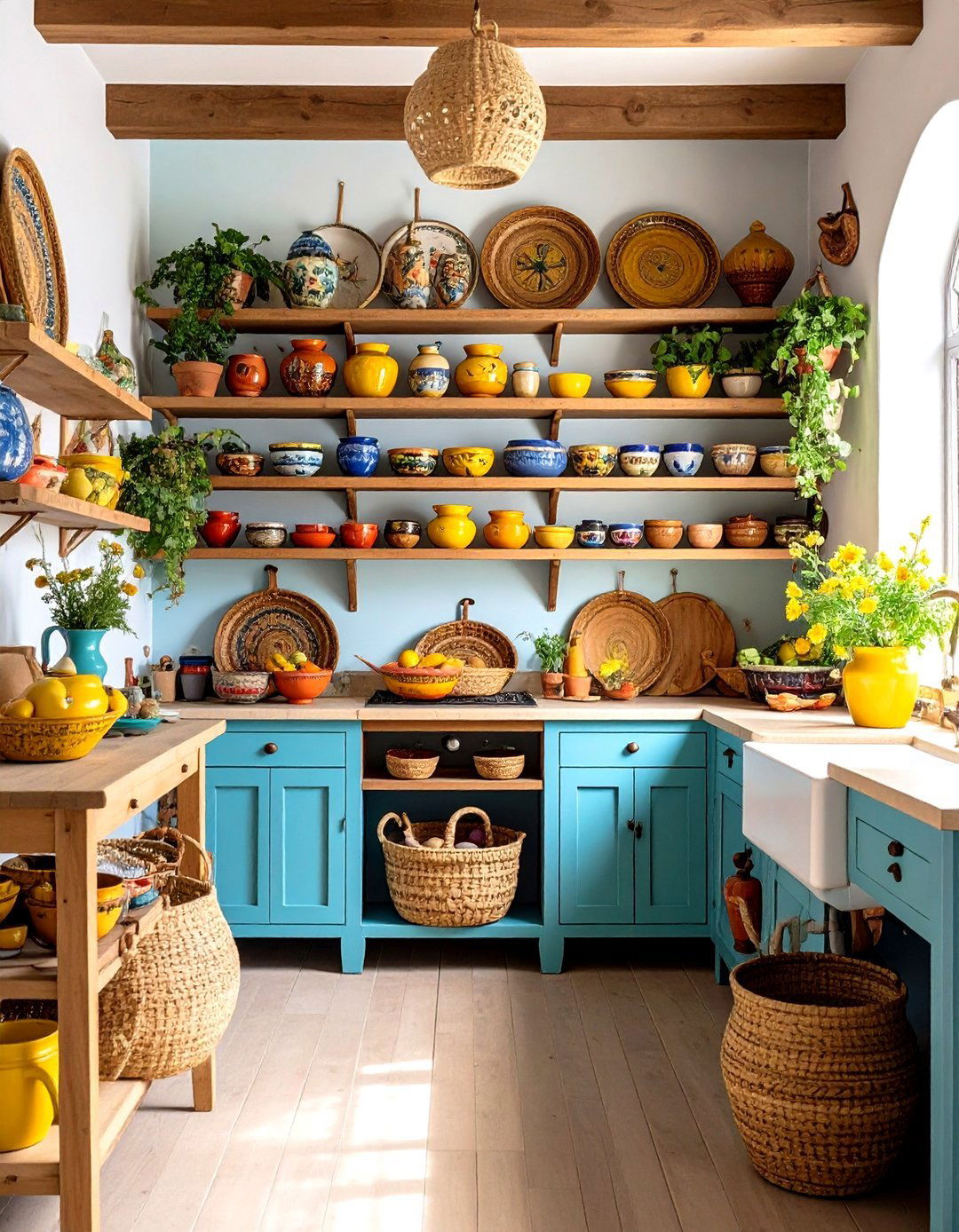
What stories can your open shelving tell about Mexican culture and culinary traditions? Display systems showcase beautiful pottery collections, handwoven baskets, and colorful serving pieces while providing functional storage solutions. Consider incorporating decorative brackets, carved wood supports, or wrought iron details that complement overall design themes. Arrange items by color, size, or function to create visually pleasing compositions that remain practical for daily use. Traditional materials like reclaimed wood, natural stone, or handforged metal ensure shelving systems feel authentic to Mexican design principles. These displays should balance aesthetic appeal with kitchen functionality, creating living galleries that celebrate Mexican artisan craftsmanship.
20. Mexican Kitchen Fireplace Integration
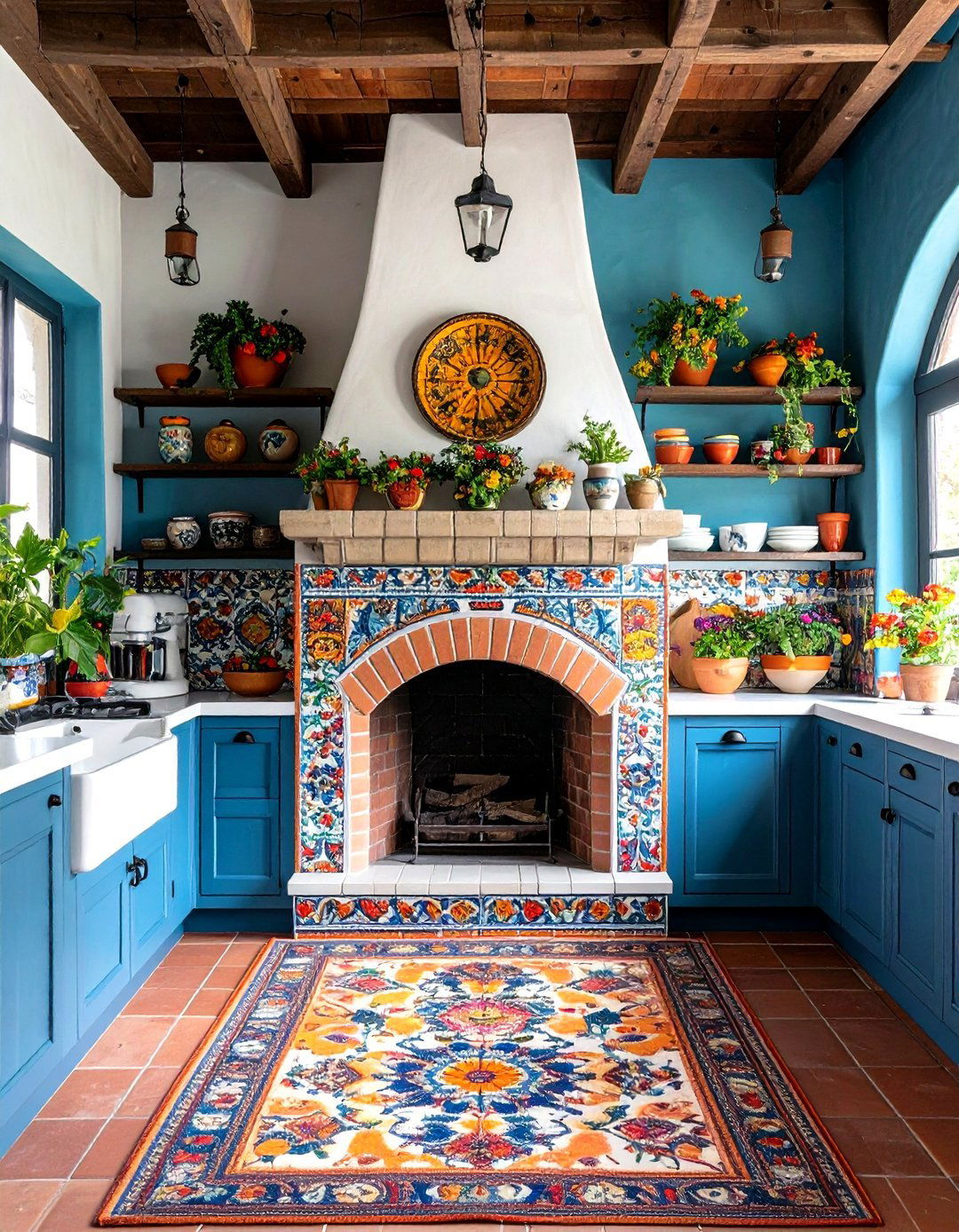
Kitchen fireplaces create romantic gathering spaces while honoring traditional Mexican architectural elements and cooking methods. These features can incorporate decorative tile surrounds, carved stone mantels, or rustic brick construction that complements overall kitchen designs. Consider designs that accommodate both ambiance and practical functions like warming tortillas or providing additional cooking surfaces. Traditional materials like adobe, natural stone, or handmade brick ensure authentic appearance while modern safety features maintain practical functionality. The fireplace becomes a natural focal point that encourages family gathering and extends kitchen use beyond meal preparation into social entertainment and cultural celebration.
21. Mexican Kitchen Pantry Organization Systems

Organized pantry spaces honor Mexican culinary traditions while accommodating the diverse ingredients essential for authentic cooking. Traditional storage containers, open bin systems, and handcrafted shelving create functional beauty that celebrates food culture. Consider incorporating clay ollas for grain storage, wooden boxes for dried chiles, or ceramic containers for specialty ingredients. Open shelving allows easy ingredient identification while closed storage protects sensitive items from light and moisture. The pantry should feel like an extension of the kitchen's design theme while providing efficient organization for Mexican cuisine's complex ingredient requirements. Handcrafted details and natural materials ensure the space feels authentic to Mexican design principles.
22. Mexican Kitchen Garden Window Features
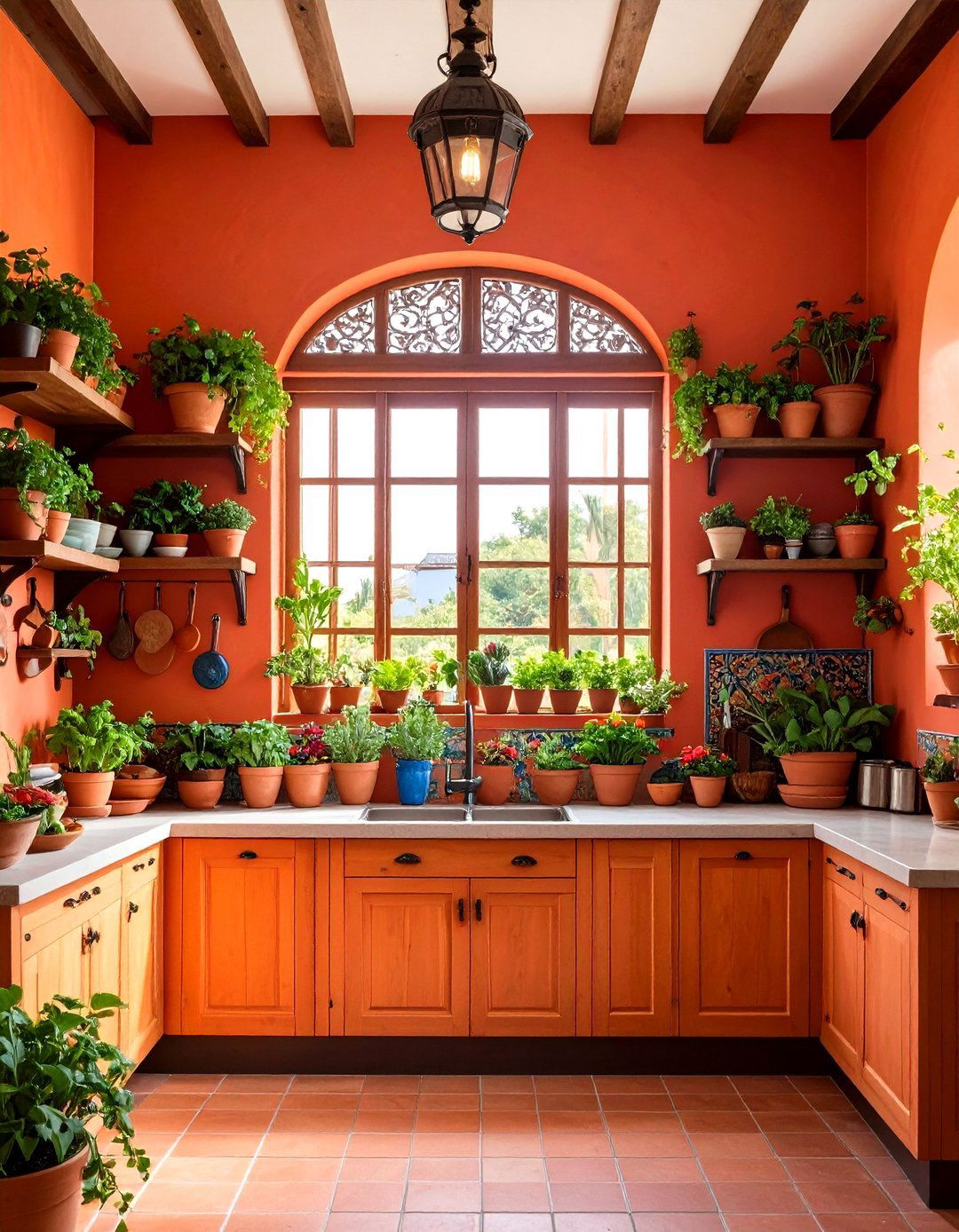
Garden windows bring natural beauty indoors while providing perfect growing conditions for fresh herbs and small vegetables essential to Mexican cooking. These architectural features extend interior space while creating natural display areas for plants, pottery, or decorative objects. Consider incorporating traditional materials like carved wood frames, decorative tile surrounds, or wrought iron details that complement kitchen aesthetics. The extended sill space accommodates various pot sizes while providing drainage solutions that protect interior finishes. Natural lighting encourages healthy plant growth while creating beautiful silhouettes and changing seasonal displays that connect kitchen interiors with outdoor garden spaces.
23. Mexican Kitchen Backsplash Mural Artistry

Custom tile murals transform kitchen backsplashes into artistic masterpieces that celebrate Mexican culture, landscapes, or traditional motifs. These handpainted installations can depict everything from market scenes to floral patterns, creating unique focal points that reflect personal interests and cultural appreciation. Consider working with local artists or Mexican tile artisans to create authentic designs using traditional techniques and materials. The murals should complement surrounding design elements while standing alone as artistic statements. Protective sealers ensure durability in kitchen environments while preserving artistic details. These custom installations become conversation pieces that elevate kitchen designs beyond functional spaces into cultural celebrations.
24. Mexican Kitchen Dining Table Integration

Substantial dining tables anchor kitchen spaces while providing surfaces for food preparation, family meals, and social gathering. Traditional designs feature thick wood construction, carved details, and natural finishes that develop character over time. Consider tables that accommodate both daily family use and entertaining larger groups during cultural celebrations. Hand-forged iron bases, decorative stretchers, or carved support elements add authentic Mexican character while ensuring structural stability. The table's placement should encourage natural traffic flow while maintaining comfortable relationships with cooking areas and storage systems. These centerpiece furniture elements often become family heirlooms that anchor kitchen designs for generations.
Conclusion:
Mexican kitchen design offers endless opportunities to create warm, inviting spaces that celebrate cultural heritage while meeting modern functional needs. From vibrant Talavera tile backsplashes to rustic pine cabinetry and handcrafted copper accents, these design elements work together to transform ordinary kitchens into extraordinary gathering places. The key lies in balancing authentic materials, traditional craftsmanship, and bold color palettes with practical considerations like storage, workflow, and maintenance requirements. Whether incorporating subtle Mexican influences through pottery displays and textile accents or embracing comprehensive design themes with architectural elements and custom features, these ideas provide inspiration for creating kitchens that honor Mexican artistic traditions while serving contemporary lifestyles and bringing families together through the universal language of food and hospitality.



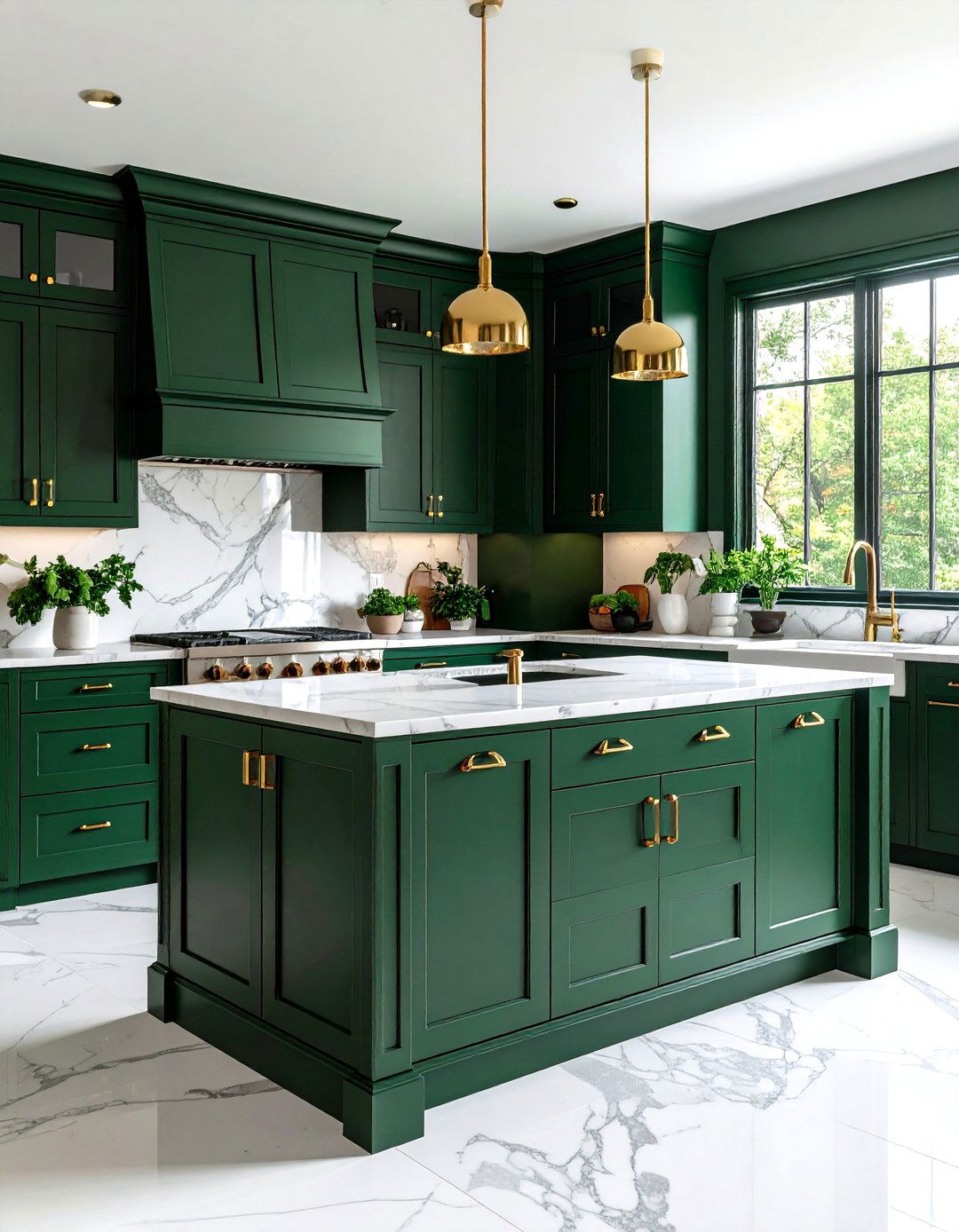
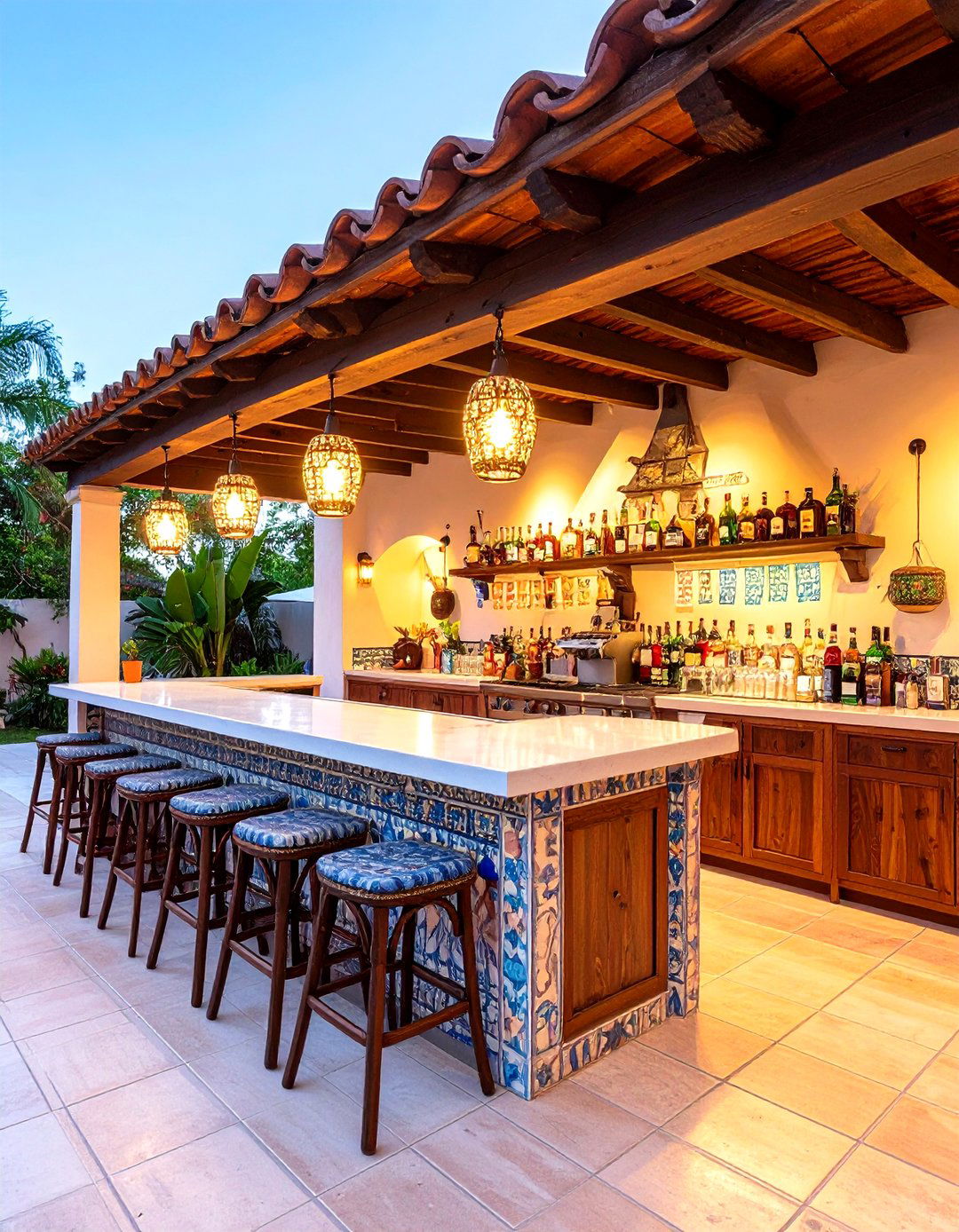
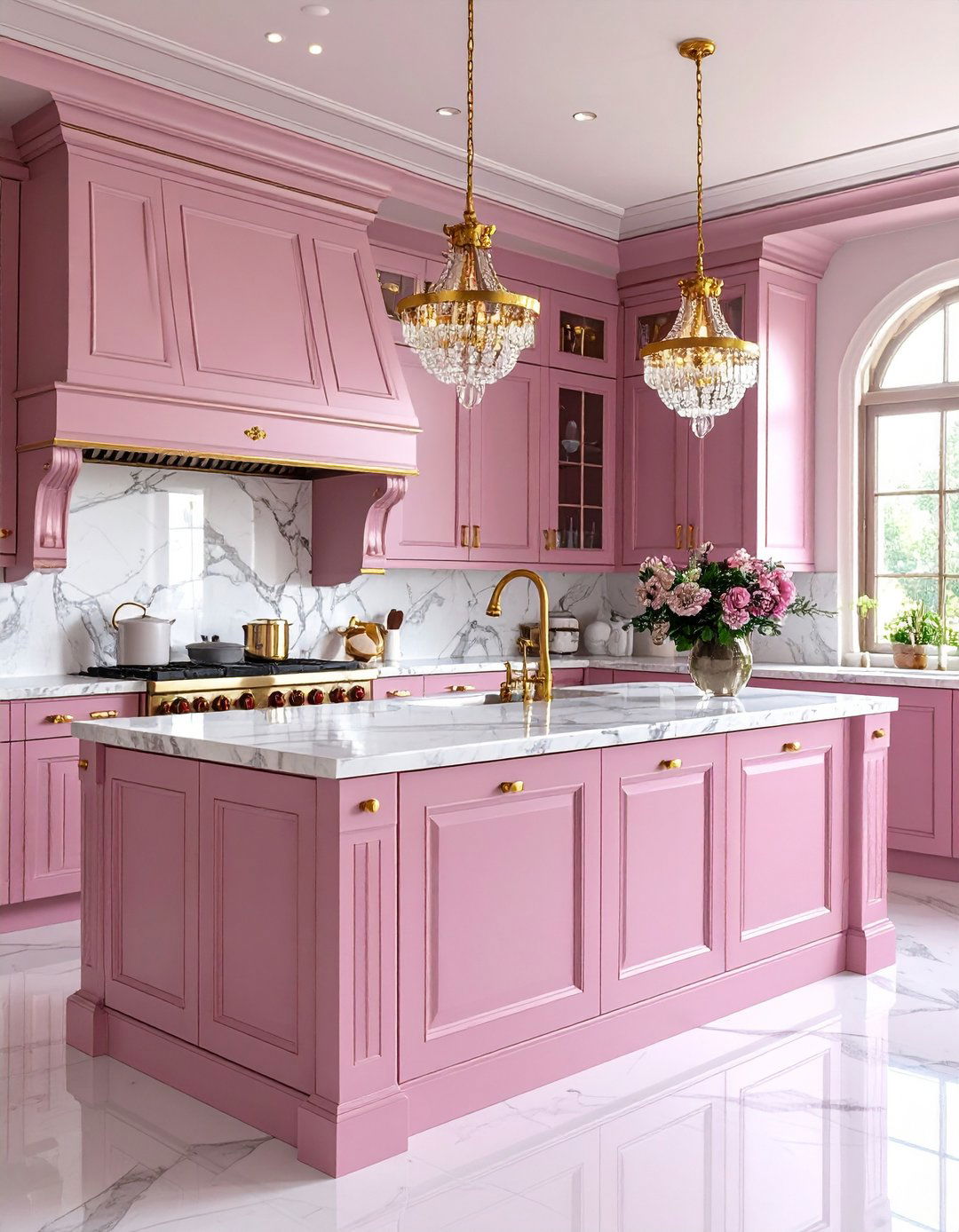

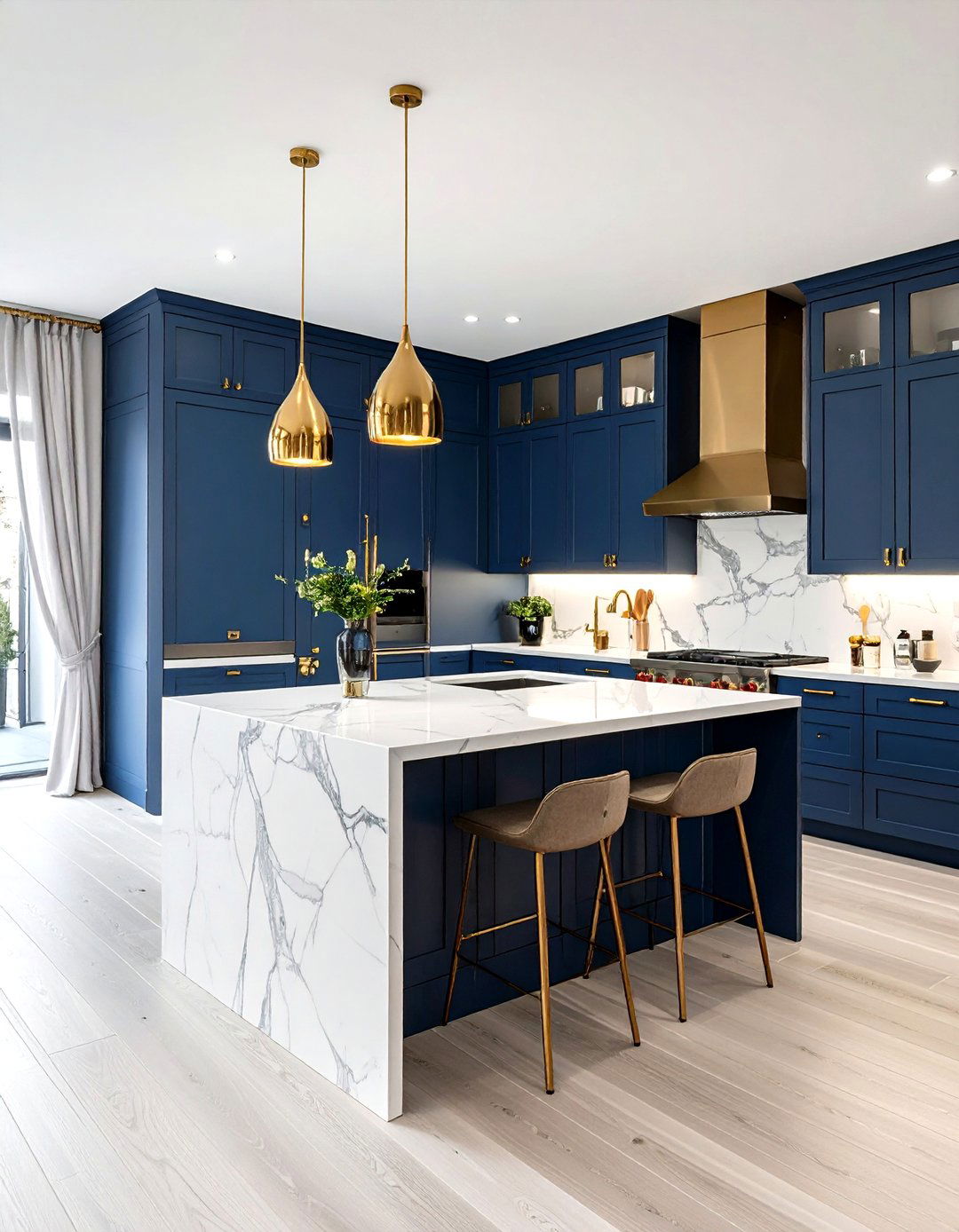


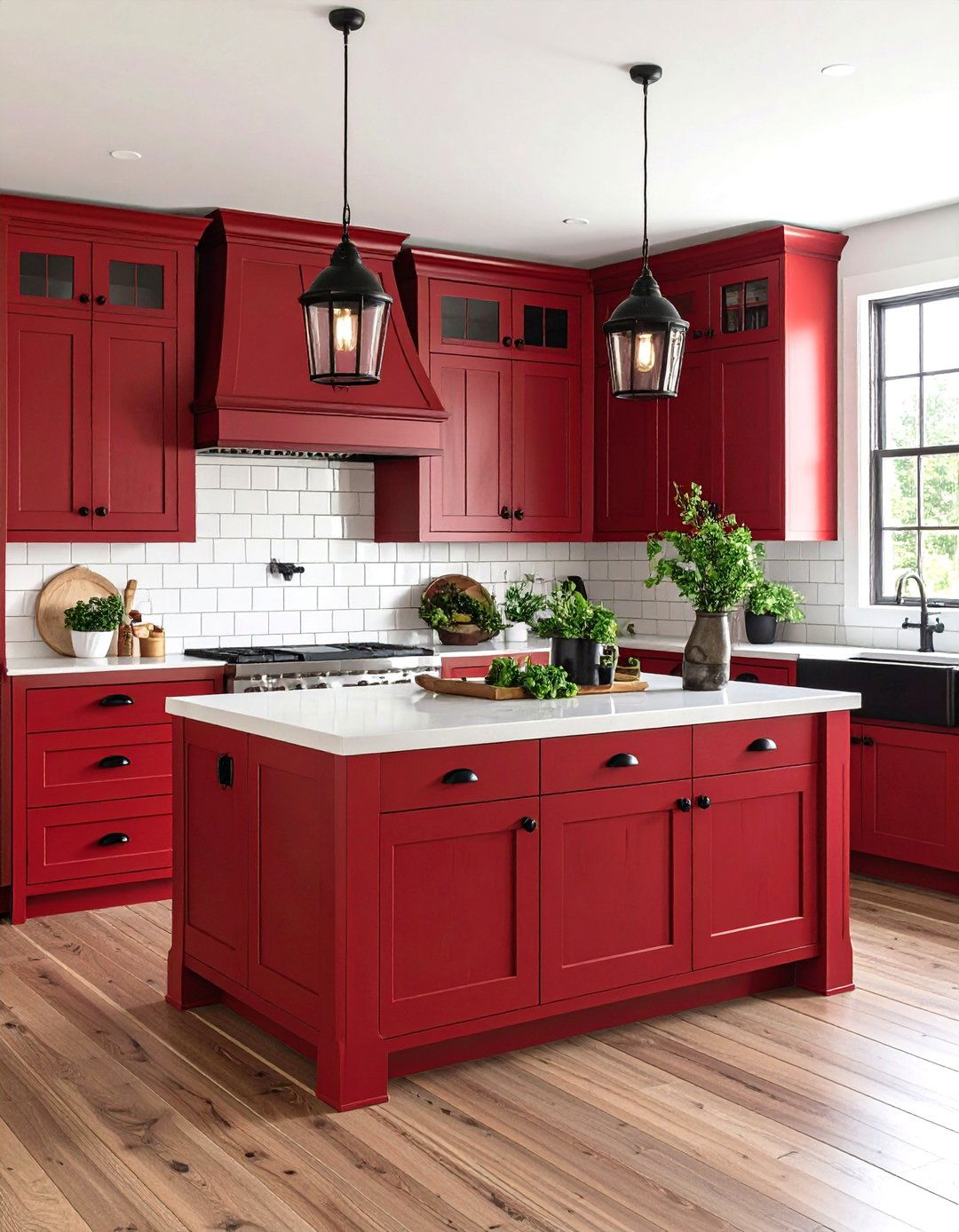
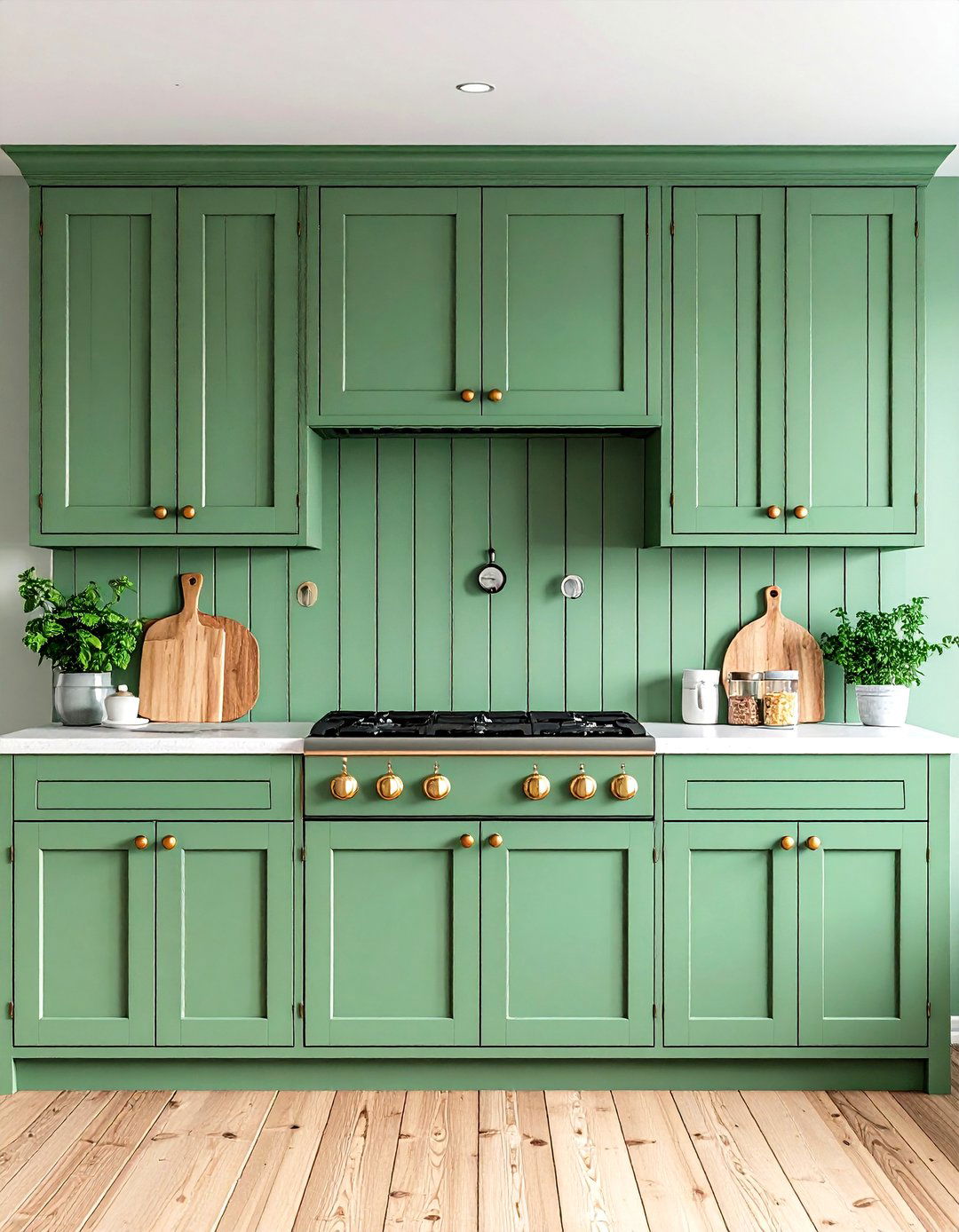


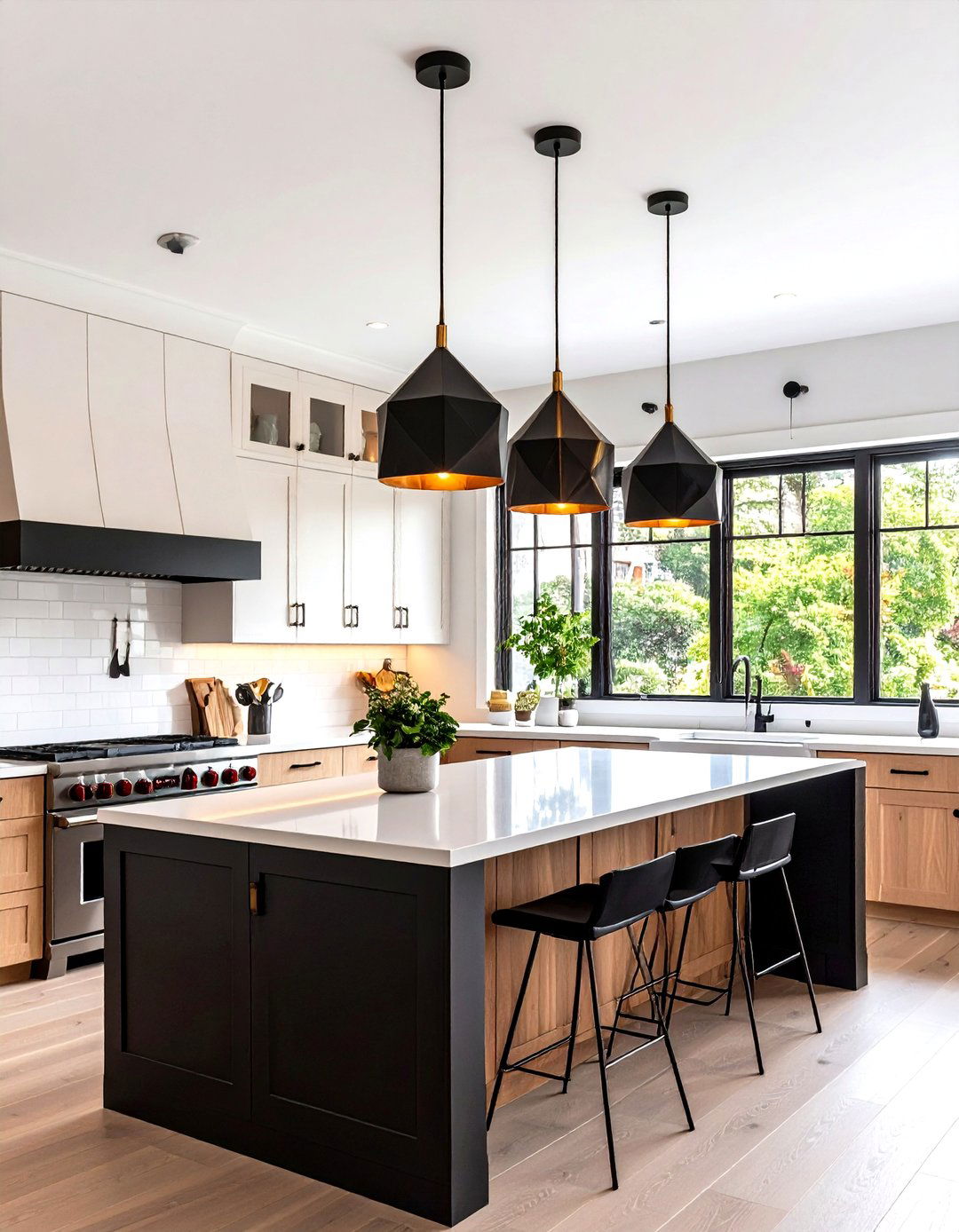
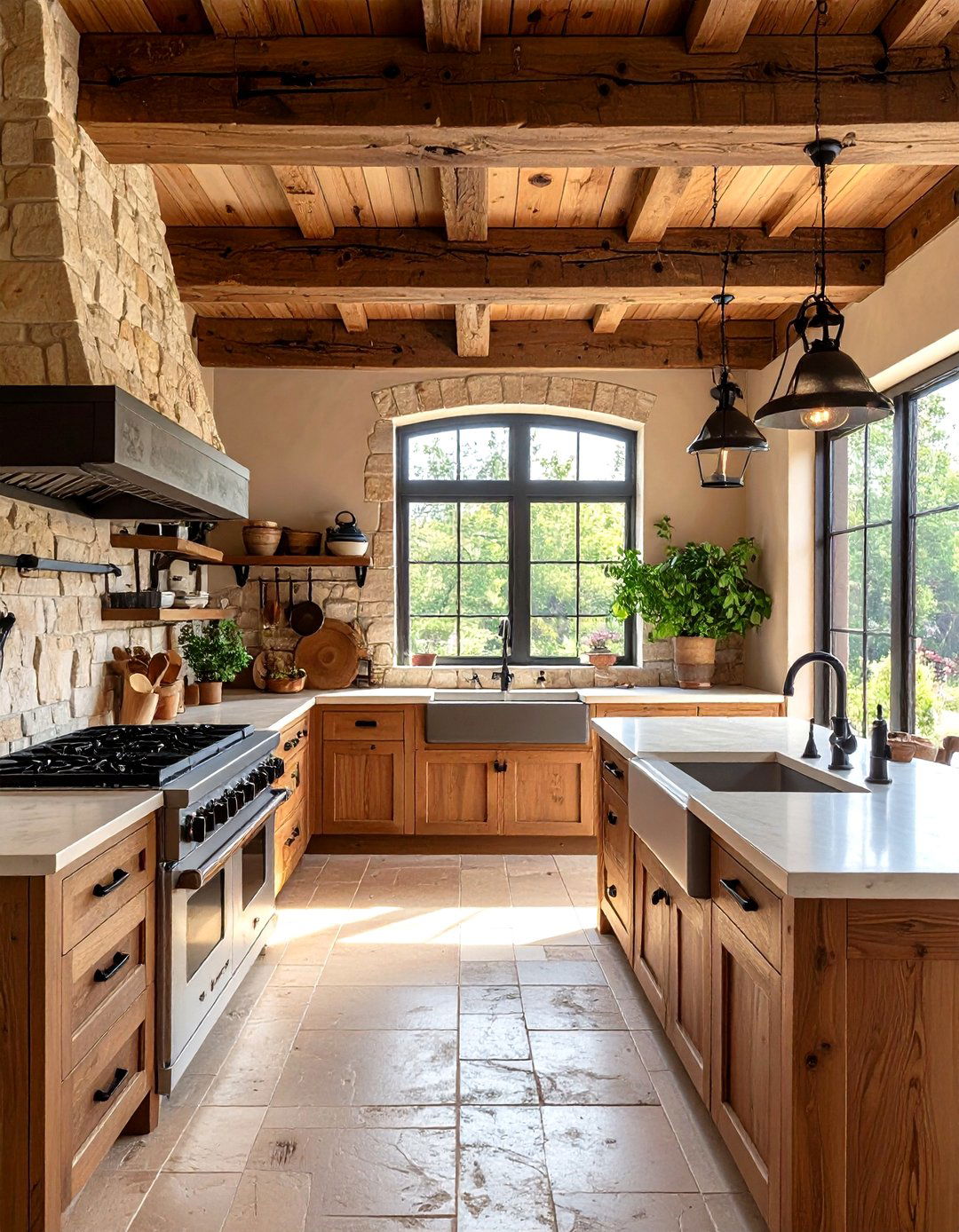
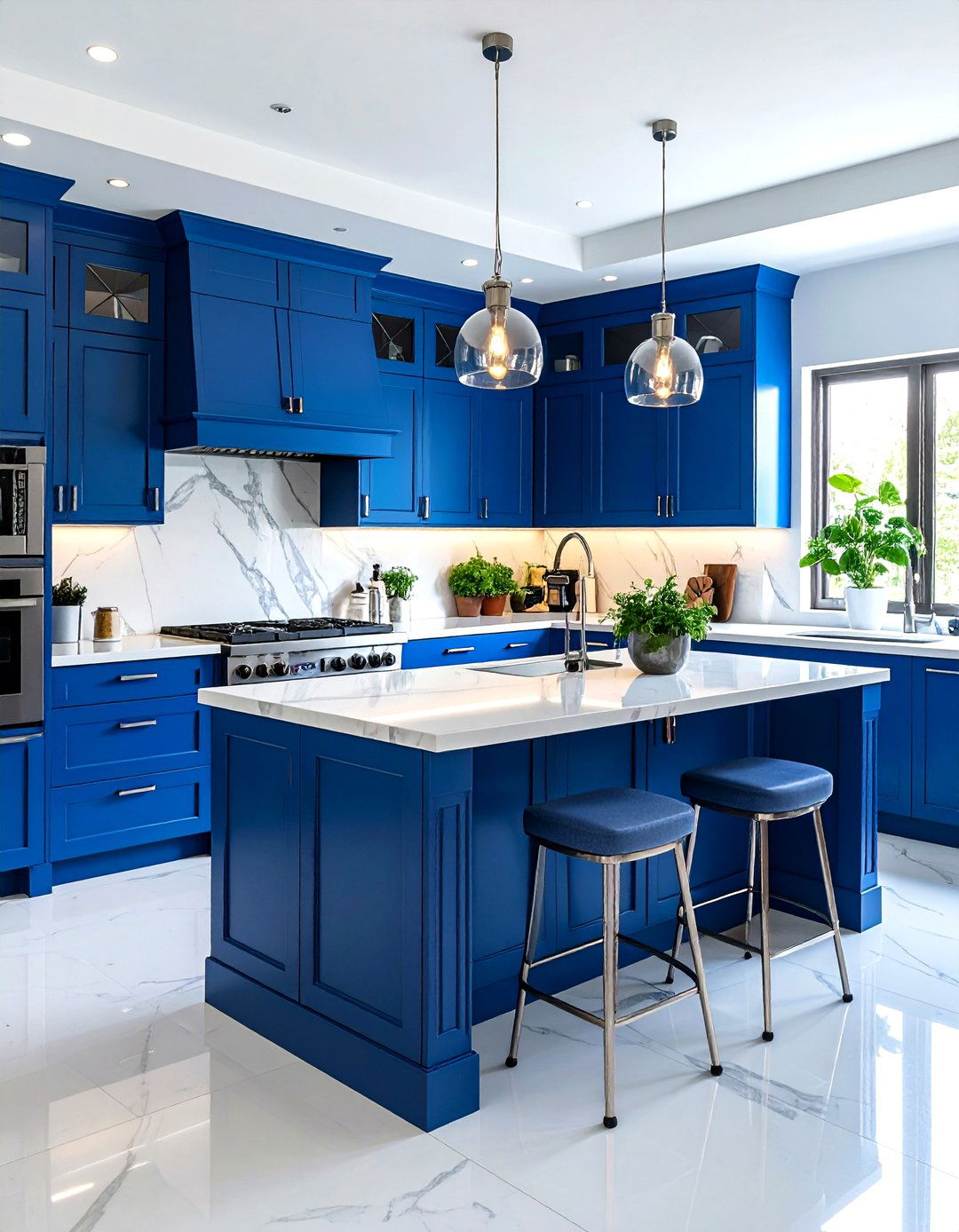
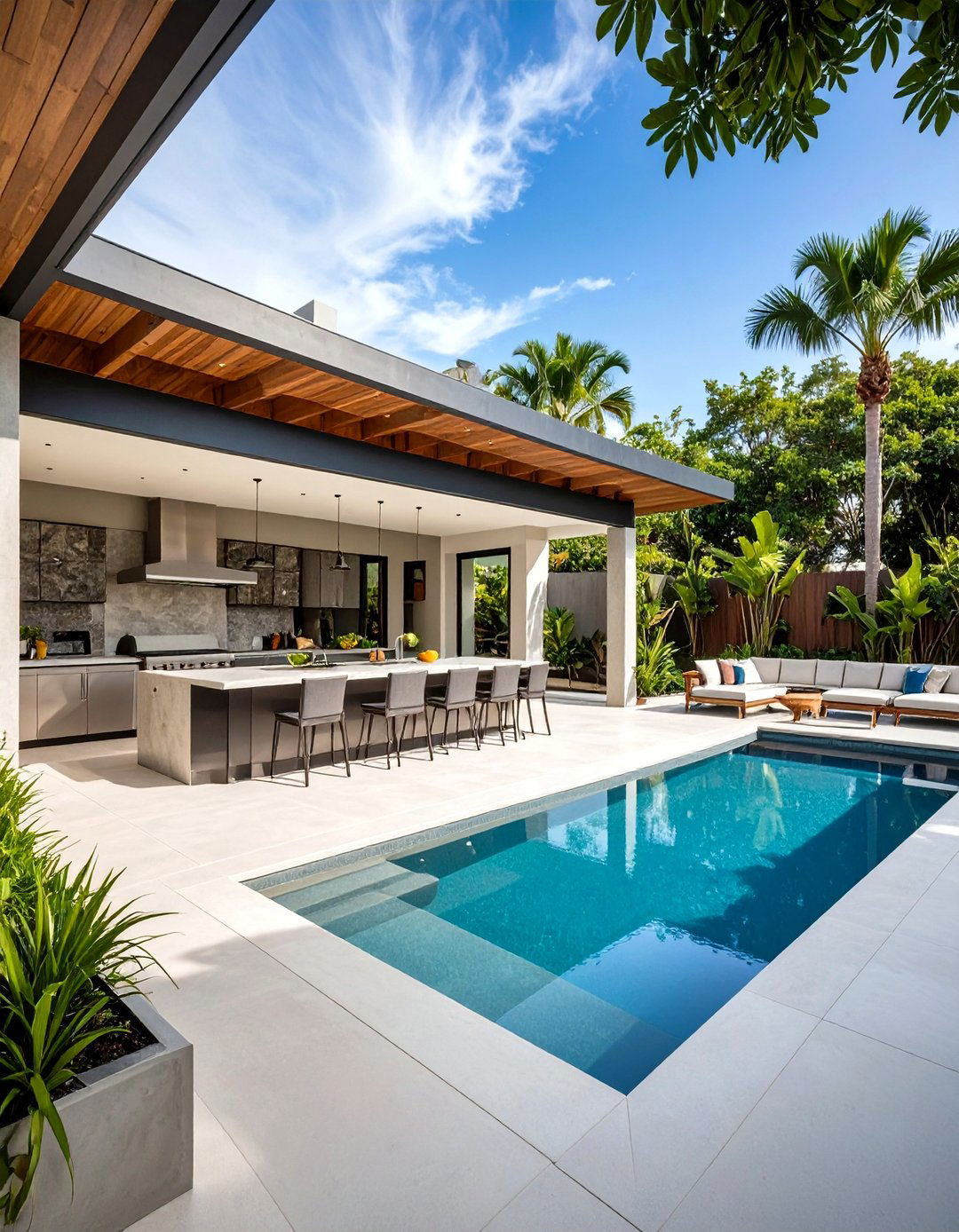
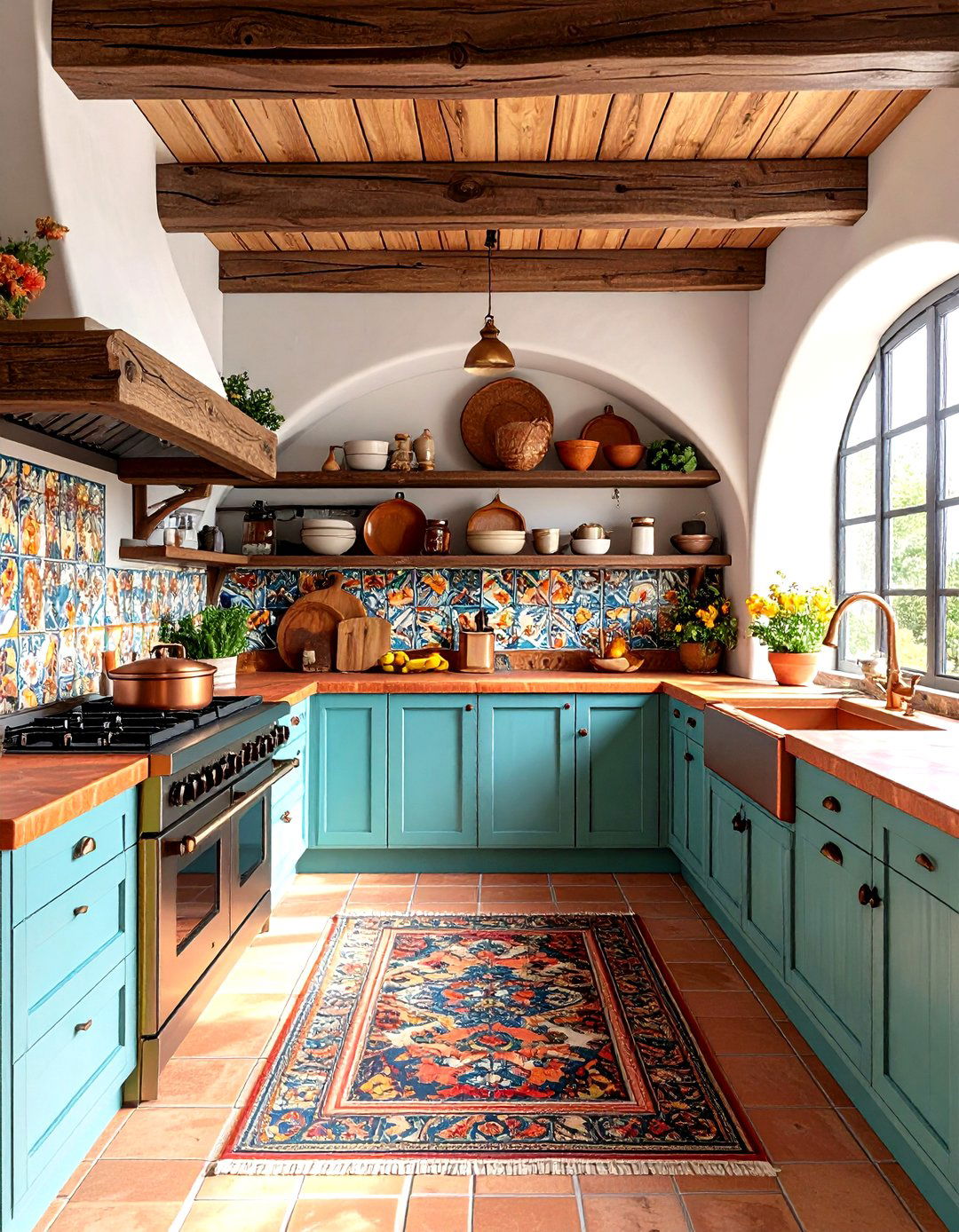

Leave a Reply